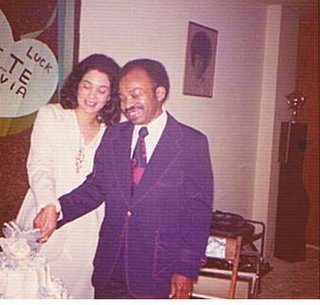Some nations are stuck in the mire of poverty and violence, never really moving forward in the areas of human rights, democracy, or quality of life. For a long time, I thought
the answer was education, but now I am not so sure. One of my former professors explained that the situations in developing countries are far more complex and difficult to assess.
He said that when the problem solving is focused primarily on education, the people who become educated leave as soon as they can. They work hard, save their money, and take the first opportunity to move to the U.S., the U.K, Australia, or Canada.
Then I began to think in terms of a two-pronged attack on the ills that plague developing nations. How about focusing on education and economic development simultaneously? I thought, "yes, that should do the job."
Unfortunately, there is another factor that must be considered: culture. Culture is shaped by the educational level of the masses, and it is shaped by economic conditions. But the situation is complicated by the fact that culture also plays a major role in determining how the masses define education, and it determines the prevailing economic philosphy (or philosophies).
Talk about circular! Which came first, the chicken or the egg?
Does the culture of Nation X preclude competitiveness in a global economy? Does the culture dictate that suffrage for women will never become normative? Or does the constant stench of poverty and despair mean that the people of Nation X are always fed up, agitated, living on edge, and therefore prone to violence? I guess it just depends on whom you ask, and when you ask. Republicans say one thing, and Democrats say another. We have to be mindful of the fact that a party may change its tune when it no longer has control of Congress or the White House. Find the requisite number of lobbyists, and ...
voila! ... instant policy change.
Let's see ... education, economic development, culture ... what are we missing? Ah, I know. We haven't considered health and environmental issues yet. *sigh*
I haven't read enough. Some of the stuff I've read, I can't understand. And I've never even set foot in a developing nation, so I wouldn't really be sure how to apply whatever I learned.
Thinking about these issues makes me really believe that the men who wrote the Constitution really had a clue. I think they understood that in order for a nation to meet its potential, the people had to have a meaningful role in the process of governing. They understood that the people needed to be free to speak their minds publicly, without fear of reprisal from the government. They understood that the system they were setting up was flawed, and would probably be subject to much needed change at some point; so they strove to create a document that was both flexible and durable.
A good foundational document is a good start. But that's just the beginning. Do the people embrace it? Do they hold its ideals close to their hearts? Are they willing to face extreme hardship or even death so that the ideas espoused can be brought to fruition?
As far as I can tell, the answer to these questions is more likely to be "yes" when the document is a creation
of the people, is implemented
by the people, and functions
for the people. That's what happened during the seminal stages of the United States. The overwhelming majority of movers and shakers really believed that the Revolution was good, right, and necessary. They were true believers,
zealots.
Who can extinguish the fire that burns within a zealot's chest? It seems that more often than not, the flame is not even quenched at death, but instead, is passed on to another, someone even more eager to bear a glorious burden.

